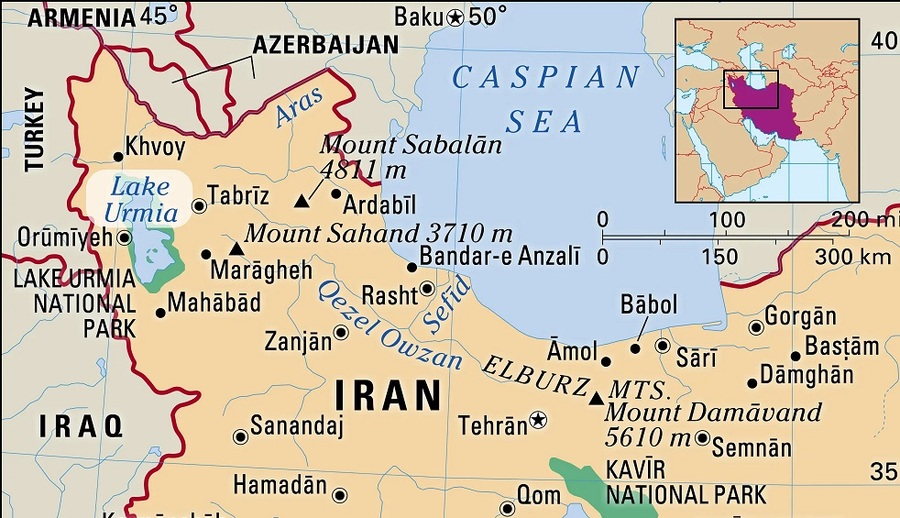After Karim Khan Zand died, a major struggle among the descendants of the Zand dynasty to claim power began and at the end "Lotfali Khan Zand", Karim Khan's nephew who was only nineteen years old succeeded to gain power over the other rivals. However, now he had to face "Agha Mohammad Khan Qajar" who was taken hostage during the Afsharid and Zand reigns for many years. These two struggled over power and after a long battle and many unpleasant events, Lotfali Khan gave up the power. At the same time as this political defeat, in 1783 A.D. "Louis XVI", the king of France sent an ambassador named "Count De Ferrier" to Iran so that this ambassador could prevent political union among Iran, Russia, and Austria and make Iran unite with the Ottomans.
"Count De Ferrier", the French ambassador, who witnessed the struggles among those who claimed power in Iran, asked France to help Ahmad Khan Donboli against Agha Mohammad Khan Qajar who was receiving help from Russia in secret so that Ahmad Khan could become the King of Iran. Most of the Donboli noblemen also asked Ahmad Khan to claim power because they believed that he had every chance to do so and he deserved to become the King. Ahmad Khan, however, responded to this request that he would act based on his ancestor's will and he will remain as the ruler of the Donboli tribe.
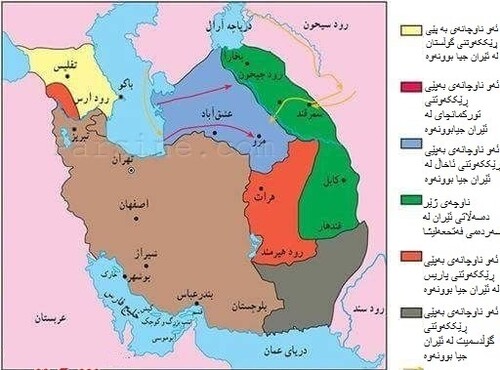
In fact, it could be said that the Donboli authority was a strong one during the Afsharid, Zand, and even at the beginning of Qajar dynasties and during Fathali Shah Qajar, the Donbolis became Biglar and Baig (lords and noblemen) of Tabriz which was the most significant political headquarter for the second time.
As we mentioned earlier, the Donbolis were in good relationships with the Qajars. Mohammad Hassan Khan Qajar had a great respect towards Najaf Quli Baig Donboli and he gave him the title of "Atabag" and chose him as his own son, Agha Mohammad Khan's private teacher.
Agha Mohammad Khan stopped fighting with the Donbolis in Shiraz who were taken as hostages by Karim Khan. This made it easier for the Donboli family to go back to "Khoy" although they had divided into two branches who became rivals with one another.
After Agha Mohammad Khan chose Hossein Quli Khan Donboli (one of Ahmad Khan Gorin's descendants) as the Biglarbaig in his region, his brother, Ja'far Quli Khan, plotted against his own brother and he conspired behind his brother's back with the Qajar noblemen. He finally persuaded the Qajars to take away "Khodada Khan's" power and choose himself as the Biglarbaig in Azerbaijan. Ja'far Quli Khan's son, Biouk Khan, was taken hostage by the Qajar court. The Iranian historians do not mention Ja'far Quli Khan Donboli as an honorable politician and they think that he was the reason for the long-lasting and destructive fights between Iran and Russia for his conspiracies with the Ottomans and the Russians at the same time. As a result of those fights and battles the Golestan Treaty and later Turkmenchai Treaty were signed. Based on these two treaties ten cities of Iran which were next to the Caspian Sea and a part of Talesh, Yerevan, and Nakhchivan states, Armenia, and the north part of Azerbaijan were taken apart from Iran and were attached to Russia. Iran also had to give the Russians the right to Capitulation as a result of those treaties.
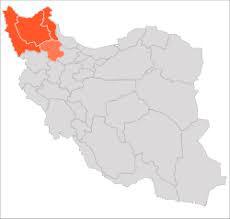
Donboli Emirs borders
During the battles of Iran and Russia, "Abbas Mirza", the crown prince of Fathali Shah of Qajar, invaded Khoy with an army due to the complaints of people of "Shakki", one of the Caucasus cities, about Ja'far Quli Khan. Abbas Mirza and Ja'far Quli Khan fought and in the end, the Donboli army got defeated so Ja'far Quli Khan took refuge in the Ottoman State. Although after this fight the authority of Khoy was apparently given back to "Mahmoud Khan" Donboli who was a trusted figure by the Qajar court and he had been ruler of several cities during the Qajar reign, however, this was, in fact, the last phase of Donboli Emirs' authority and power in history. One of the most important reasons for this was, as mentioned earlier, the tendency of Donboli Emirs to cooperate with Russia which can be clearly seen in the Kurdistan Republic period. We can surely, say that Kurds' tendency toward Russia began from the time of "Amir Aslan Khan" and "Ja'far Quli Khan" of the Donboli Emirs.
Throughout the time when the Safavids and the Ottomans were in power, the Kurds always had to protect their lands among these two regional powers so they had to incline towards the more powerful state, thus, it is only natural that supporting a more powerful party than the other two that was close to Kurdistan, had made Kurdish Emirs believe that they could be more successful if they would trust the Russians and this would end in protecting Kurdish political authority against the Iranian and the Ottomans.
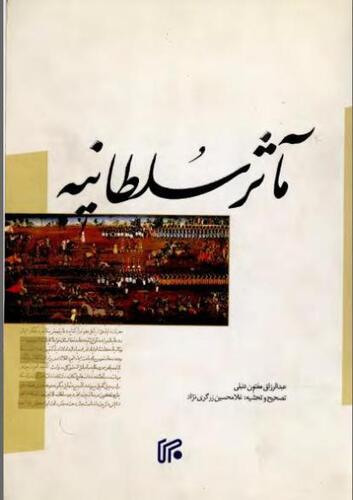
The Donboli dynasty were not only prominent politicians but they also had many cultural and literature eminent figures. They remained shining stars in the Qajar political court as cultural figures long after their defeat. The most famous Donboli figure was "Abdulrazagh Baig Donboli", the Gorina historian who was "Najaf Quli Baig" son. He spent his youth in Shiraz so he was educated in the most literate city in Iran and he was known as "Maftoun" as his nickname. Maftoun was particularly admired by "Qayem Maqam Farahani", the prime minister of "Mohammad Shah" of the Qajar dynasty who was himself a literature expert. These great books are written by these historians: "Ma'aser al-Sultanieh", "Hada'eq al-Odaba", "Tajrobat al-Ahrar u Taslieh al-Abrar", "Homayoun Nameh", "Negarestan Dara" "Ryadh al-Jennah" and translation of Krusinski's Travelogue (the Polonian ambassador in Iran during the Safavid dynasty).
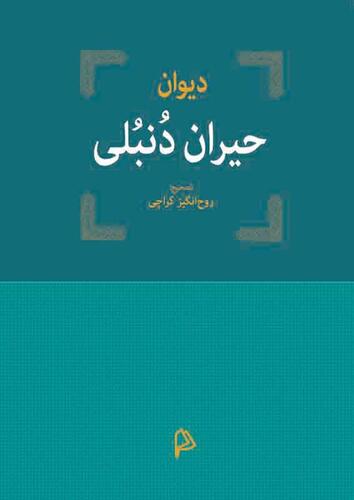
Another eminent figure was "Mahmoud Khan Donboli" one of Shabaz Khan’s descendants. He was a doctor, scholar, and Fathali Shah Qajar's court poet who stayed close to the Qajars until the last days of his life. The Donboli dynasty also had great female scholars too. During Fathali Shah’s reign, there were several literary and knowledgeable women in Kurdistan such as "Mastoura Ardalan", "Hosni Jahan Khanm Waliyeh", "Baigm Khanm Kashi", and …. Among Donboli tribes there was "Hayran Khanm Donboli" daughter of "Karim Khan Donboli" who wrote poems in three languages of Kurdish, Turkish, and Persian.

Heyran Khanm wrote 3588 verses which include: 333 Ghazal, 68 Quartet, 2 Mostazad (a kind of Persian poem), 16 Masnavi (couplet), 8 Musamat (another kind of Persian poem), 2 Tarkib band (Compound), 3 Qat'eh (pieces), 5 Ode, and 2 Ode_ Ghazal and some Turkish poems. This lady was the most hardworking Kurdish and even Iranian poet of her time.
In addition to these two, there were other significant figures in the Donboli dynasty.

